Write a formula for the nth term of the arithmetic sequence. Do not use a recursion formula.-7, -3, 1, 5, 9, . . .
A. an = 4n - 11
B. an = -7 + 4n
C. an = -4n + 11
D. an = 4n + 11
Answer: A
You might also like to view...
Graph the equation.f(x) = 3x2 - 2x - 9
A. 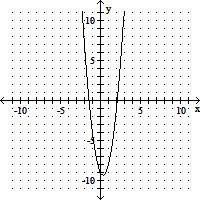
B. 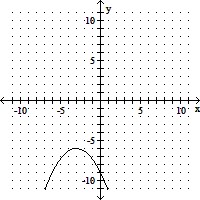
C. 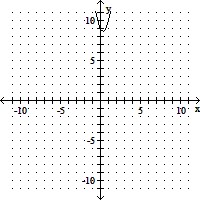
D. 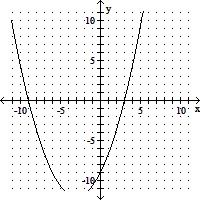
Provide an appropriate response.Bachelor's Degrees Conferred in Math, Science, and Engineering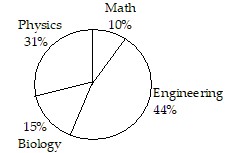 What is the measure of the central angle of the Physics category? Round to the nearest degree.
What is the measure of the central angle of the Physics category? Round to the nearest degree.
A. 102° B. 122° C. 112° D. 117°
Solve the problem or provide an explanation.Graph y = x2 - 5x - 6 and f(x) =  together on your graphing calculator. State the domain of f(x), and explain the connection between the domain of f(x) and the graph of
together on your graphing calculator. State the domain of f(x), and explain the connection between the domain of f(x) and the graph of 
A. The domain of f(x) is [-1, 6). The domain of f(x) is the set of all x-values for which the graph of  is on or below the x-axis.
is on or below the x-axis.
B. The domain of f(x) is (-?, ?). The domain of f(x) is the same as the domain of 
C. The domain of  The domain of f(x) is the set of all x-values for which the graph of
The domain of f(x) is the set of all x-values for which the graph of  is on or above the x-axis.
is on or above the x-axis.
D. The domain of f(x) is ?. There is no connection between the domain of f(x) and the graph of y = x2 - 5x - 6.
Graph the function by hand. Use the graph to (a) find the range, (b) give the interval over which the function is increasing, and (c) give the interval over which the function is decreasing. Round approximations to two decimal places.f(x) = - 
A. (a) [-8, 0] (b) (0, 1.60) ? (-1.60, 0) (c) None B. (a) [0, 8] (b) (-1.60, 0) (c) (0, 1.60) C. (a) [-8, ?] (b) (0, 1.60) (c) (-1.60, 0) D. (a) [-8, 0] (b) (0, 1.60) (c) (-1.60, 0)